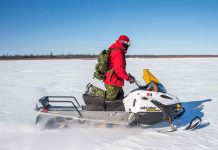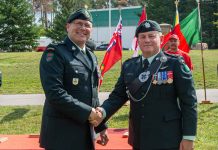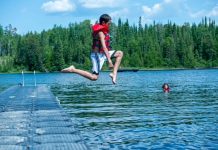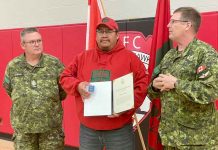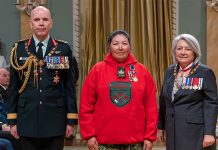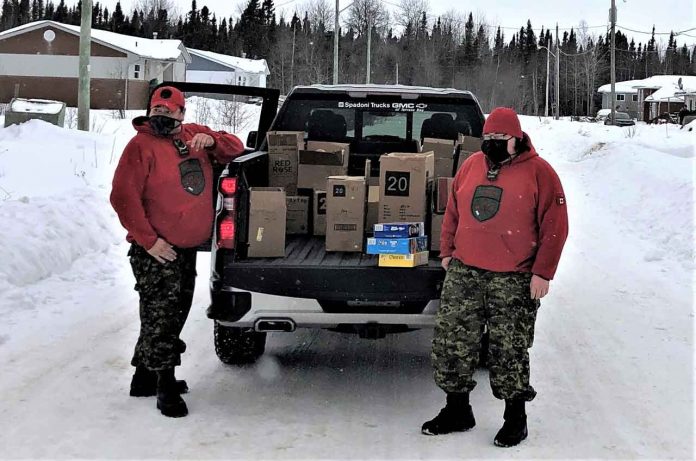
The Canadian Rangers of Northern Ontario have successfully concluded their busiest 19 months of responding to emergencies since their first patrol opened 27 years ago.
There are now Rangers, who are part-time army reservists, in 29 First Nations across the Far North of Ontario. Since March of 2020 they have responded to a range of emergencies, including assisting First Nations in crisis because of the COVID-19 pandemic, supporting health authorities in providing vaccinations in 34 remote and isolated First Nations, monitoring spring ice break ups and doing forest fire watches, conducting search and rescue missions, and supporting First Nation emergency evacuations.
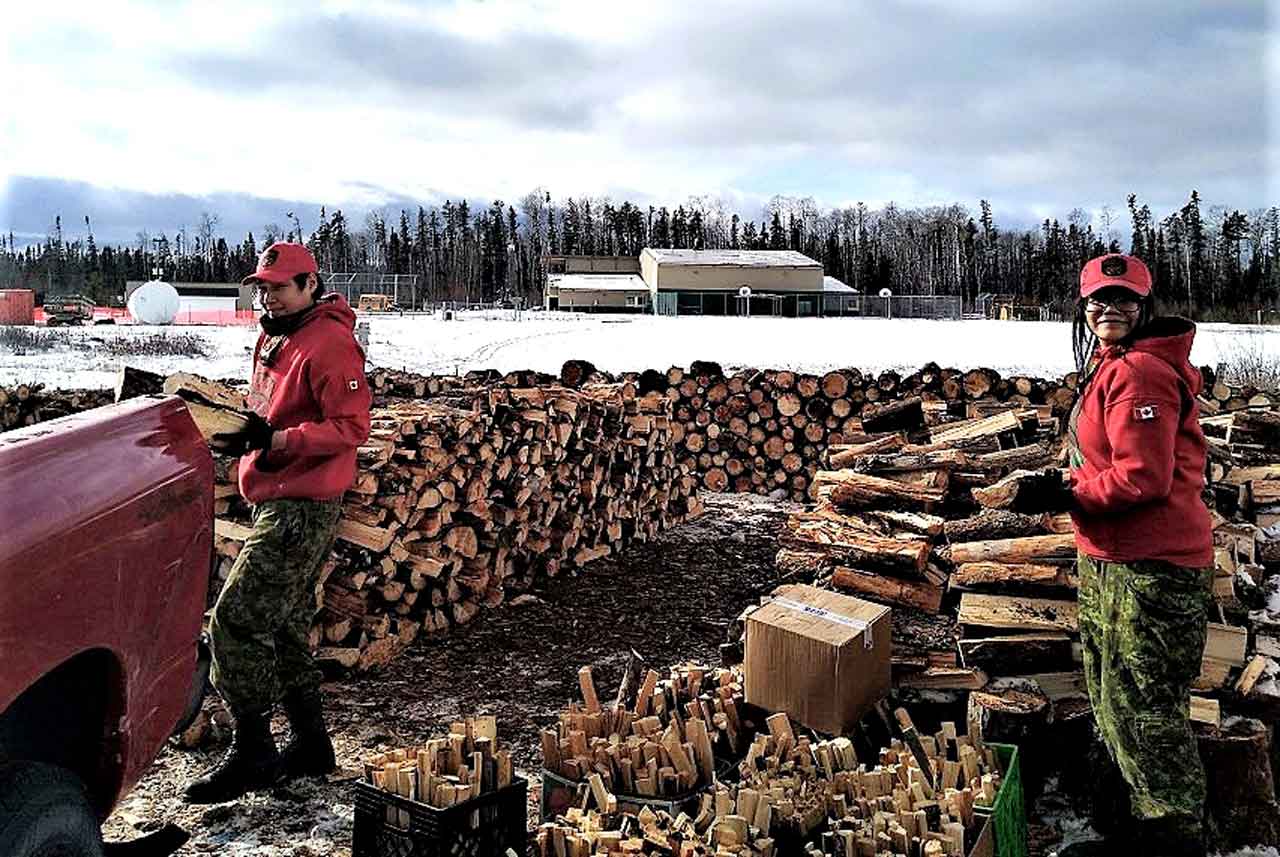
“We react to a myriad of requirements and tasks and missions across the North,” said Lieutenant-Colonel Shane McArthur, who commands the 600 Rangers of the 3rd Canadian Ranger Patrol Group, headquartered at Canadian Forces Base Borden. ”In the last 19 months we’ve been called on to support, more and more increasingly, difficult tasks in more and more First Nations.
“There was a growing concern that we may not be able to respond to provide support and therefore a potential for no response existed. And in the eyes of the military, this could mean mission failure, which is clearly not acceptable. The answer was the formation of RGTs, Ranger Go Teams, ready to respond quicker to any First Nation that needed assistance.”
The teams consist of a Ranger instructor, a soldier, and Canadian Rangers. The number of Rangers is as large as required. The Rangers volunteer to join the RGTs for periods of up to 14 days on full-time duty.
Former Nishnawbe Aski Nation Grand Chief Alvin Fiddler provided key advice and support for the Ranger Go Team concept, Lt.-Col. McArthur said. “He was an excellent partner in supporting our intent,” he said.
The initial response to the teams was suspect, both from Rangers volunteering to serve on them and from First Nations. Chiefs and band councilors were often reluctant to have outsiders come into their communities during the COVID-19 crisis.
However, with persistence and communication the teams have become a huge success. Many Rangers are now eager to join them when First Nations request their help with growing frequency when their own resources are overwhelmed.
“The Ranger Go Teams became an absolute necessity,” Lt.-Col. McArthur said. “They move out to support First Nations with and without a local Ranger patrol. They responded to different emergencies across the North. They allow us to provide support when and where it is needed and ensure the resiliency of our Rangers is maintained. They have been a great success.”
The drinking water crisis that led most of the population of Neskantaga First Nation to evacuate to Thunder Bay for 72 days late last year was the first major test for the RGT concept, Lt.-Col. McArthur said. The Rangers helped keep the infrastructure operating and aided the remaining occupants, many of them elders, by providing them with food, water, firewood, and other necessities.
“Neskantaga proved beyond a show of doubt that in the worst possible conditions the Ranger Go Teams could work and do an excellent job of it,” he said.
In May, three soldiers and a team of Rangers went to the aid of Lac Seul, a small First Nation, when it was overwhelmed by the number of its COVID cases and the community went into lockdown and subsequently asked for Ranger help. The Rangers provided a range of supports to the frightened community. It delivered food and water to housebound residents, collected their mail, delivered toys and games to children, conducted wellness checks, liaised with the chief and council, provided transportation, and gave humanitarian assistance.
“There was a lot of anxiety at the beginning,” said Chief Clifford Bull at the time. “People were scared and very afraid of getting COVID. But, oh man, the Rangers were helpful, very helpful. We very much appreciate all the support they gave us. We could not have handled it without them. The sight of their red sweaters and ball caps, their boots on the ground, that meant help to us. They have been great.”
The number of First Nation emergencies across Northern Ontario has eased and full-time Ranger Go Teams are no longer on standby in Thunder Bay. But an RGT team, formed from a list of Ranger volunteers, can be assembled and ready to move to a First Nation asking for help within 48 hours, pending the notice, lead time, and type of assistance, Lt.-Col. McArthur said.
“The RGTs are a concept that we now know works and so do the Rangers and their chiefs and councils,” he said.
(Sergeant Peter Moon is a Canadian Ranger with the 3rd Canadian Ranger Patrol Group at CFB Borden).

